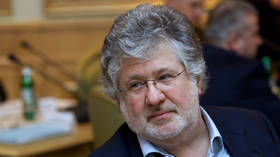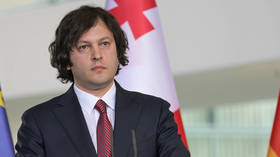‘We feel alien at home’: Austrians flood popular newspaper with desperate messages over migration
Austria’s largest newspaper has received an unexpected response after its columnist claimed that the term “population replacement” was not appropriate for the Alpine land. Hundreds of people said it is the reality they live in.
Austria’s Kronen Zeitung daily has admitted that it received“hundreds” of letters from its readers in just over a week, after they said they felt like foreigners in their own homeland because of mass immigration.
The strong response was provoked by the paper’s columnist, Conny Bischofberger. In an interview with Vice Chancellor Heinz-Christian Strache, she called the notion of “population replacement” a concept used by “far-right extremists.”
Also on rt.com Integration failure: Report finds 51% Vienna pupils don’t speak German at homeThe term, which describes the gradual replacement of a native population by immigrants, is popular among those on the far-right. They use it to portray growing ethnic and religious diversity as a result of some deliberate malicious actions taken by “anti-popular forces.”
After she was confronted by people asking why they should not use the term, Bischofberger dismissed it in an explanatory piece as a conspiracy theory and a mere “feeling” that “may or may not correspond with the real general demographic developments.” However, she apparently failed to strike a chord with Kronen Zeitung readers, who sought to explain that this was a reality they have been living with for years.
On the streets, on public transport and in the municipal buildings: We feel alien at home.
“We were a happy household until 10 years ago. Then everything collapsed like a house of cards,” one person wrote to the newspaper.
“The mood in our condominium has deteriorated so much that we (65 and 68) are ready to move away to finally be able to live in peace again,” another couple wrote.
No parallel societies: Austria wants headscarf ban in kindergartens and primary schools https://t.co/TJOBeFrByPpic.twitter.com/DD5m0NMZdo
— RT (@RT_com) 4 апреля 2018 г.
“Foreign-language parents with their children do not bother to speak our language… It’s sad, but one doesn’t feel well anymore,” another message read.
In our elementary school, no more excursions are conducted out of consideration for foreign languages, the diet is adapted to religious wishes and the violence of the foreign elementary school boys is frightening.
After receiving hundreds of similar messages, Bischofberger still insisted that, for many people, the notion of “population replacement” came in handy as it allowed them “not to think about the problem behind” mass immigration. However, she also admitted that “it would be cheap to defame all those people, who wrote to the Kronen Zeitung, as xenophobes, racists or far-right extremists.”
Those people were apparently asked “to accept too much migration” and did not receive enough attention from the authorities, the columnist said.
Also on rt.com Twitter up in arms after ex-Austrian MP says that girls wear headscarves to avoid migrant assaultsAustria took in one of the largest numbers of asylum seekers per capita during the refugee crisis. Some 150,000 people were accepted by the Alpine land since 2015 – which accounts for over one percent of its total population. Such developments gave rise to widespread anti-immigrant sentiment and brought a conservative coalition to power, which adopted a strict stance on migration.
Foreigners constitute 15.8 percent of the Austrian population, and 29.6 percent in the capital, Vienna, according to a 2018 survey. In February, a former MP from the conservative Austrian People’s Party, Marcus Franz, sparked a heated discussion on social media by saying that Austrian-born girls wear headscarves to prevent assaults from migrants on the streets of Vienna.
Think your friends would be interested? Share this story!












